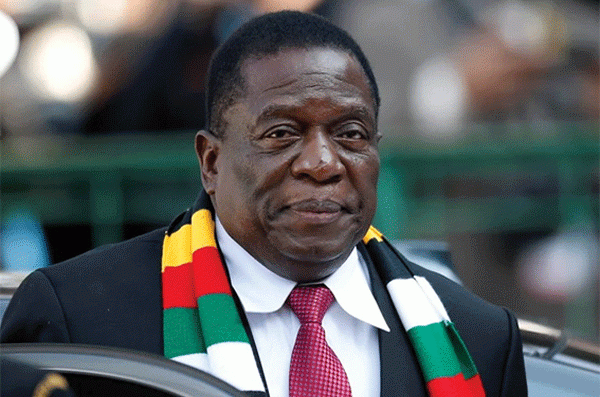
[ad_1]
REGIME change is seen as a dirty phrase by those that hold power, especially unpopular governments that have overstayed their welcome and simply hold on to power mostly by hook and crook.
Since the turn of the new millennium, regime change agenda has been part of the ruling Zanu PF party’s song book. Sanctions by the West, opposition, critical civic organisations and non-governmental organisations have all been painted with the regime change agenda brush.
Zimbabwe has been under United States sanctions since 2001, when the US government enacted the Zimbabwe Democracy and Economic Recovery Act (ZIDERA).
In 2003, the US also added a “targeted sanctions programme” aimed at individuals and dozens of companies associated with the Zimbabwe government and the ruling Zanu PF party.
The US action was replicated by the European Union which, in February 2002, imposed sanctions on the southern African country because of “serious violations of human rights, as well as violations of the freedom of opinion, freedom of association and freedom of peaceful assembly.”
The Zimbabwe government contends that the sanctions are punishment for taking land away from the minority white farmers and redistributing it to landless blacks.
After the formation of the government of national unity between Zanu PF and opposition parties in 2009, the EU eased sanctions to encourage political reform.
- Chamisa under fire over US$120K donation
- Mavhunga puts DeMbare into Chibuku quarterfinals
- Pension funds bet on Cabora Bassa oilfields
- Councils defy govt fire tender directive
Keep Reading
In February 2014, it eventually suspended sanctions on eight of Zimbabwe’s most powerful military and political figures, but maintained them on the late former President Robert Mugabe and his wife, Grace.
Despite that Mugabe was deposed by his military chiefs in November 2017, and his longtime ally Emmerson Mnangagwa replaced him, the situation has hardly improved.
If anything, the “serious violations of human rights, as well as violations of the freedom of opinion, freedom of association and freedom of peaceful assembly” have worsened.
Seeking transition from authoritarian rule to democratic governance is still labelled a “regime change agenda,” ignoring the simple fact that Zimbabweans have had enough of despots that masquerade as liberators.
It is true that there are complex political and business interests that shaped the regime agenda and political discourse in Zimbabwe for over two decades and why it has failed, with support of regional leaders fearful of suffering a similar fate in their own countries.
But after three decades of being fed horseshit as candy, and of being systematically stripped off their rights and of being shoehorned into a lifelong servitude serving a greedy and corrupt elite, Zimbabweans have earned the right to demand a regime that puts them first.
They do not care what Zanu PF and its leaders think. Regime change agenda accusations have become an excuse for a very unpopular regime seeking to justify its failings and oppression of its own people.
[ad_2] Source link










